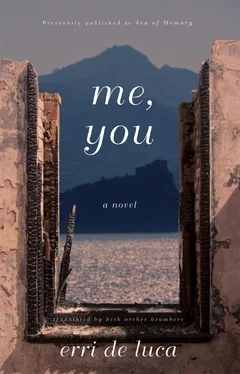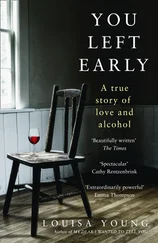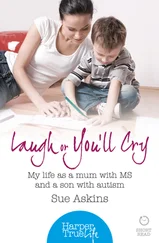A wave filled the boat above our ankles. Nicola straightened the bow into the knots of wind to give me a chance to bail, then turned her back to getting hit broadside. This happened repeatedly. So long as that sea lasted, my strength would last, measured out to arrive at parity.
I first became aware that night was changing to dawn when we reached the leeward side of the island. The blended fragrance of sand, pines, and gardens wafted from the land to sea, stronger than the smell of coffee from a kitchen. The island was a dark cup that sent its aroma out to sea. I straightened up and heard again, this time from a broken voice, barely audible, “Né paù,” don’t be afraid, and I turned to shake my head no and look him in the face. During the entire storm I had not seen him. He was soaked and as ashen as the dawn.
At last the sun rose and the eight hundred meters of Mount Epomeo broke the headwind enough to calm the sea. As we arrived in the bay of Sant’Angelo, the first sound we heard from the land was a bell calling the faithful to mass. Touching the ribs of my back, I felt proud to have worked throughout a storm. There was no pride, however, in the expressions of the fishermen; for them that night was just another night of work, of going out for bread, and how dearly they paid for it. Passing my hand over my face to close my eyes and mouth, I wiped the pride from it, repressing the impulse to talk about that night. I did not listen to the remarks exchanged between the fishermen. They untied the tow rope and pulled out the oars. Only then did I see the olive branch above the prow of the boat. It had remained in place.
We disembarked at the small pier to notify Uncle at the other cape of the island that we couldn’t reach him. Once on land, my feet on warm solid ground, I turned toward the side of the island where Caia was sleeping at that hour. I would not be relating my little boy’s storm to her.

My coevals no longer greeted me. But there was among them one fifteeen-year-old girl whose eyes followed me whenever I came by their group. Only the summer before I would have jumped hoops for a glance from her. I was sorry about the poor timing that kept desires apart instead of making them meet. I would have liked to explain myself to her but I didn’t have the nerve to go up to her. I exchanged glances with her when our paths on the island crossed unavoidably.
One afternoon I saw her walking alone on the fishermen’s beach. It was not the path one would normally take for a walk or a place one would go to expressly. I was sitting with my back to the sea in front of Nicola when I saw her approach, looking all around. She had on a peasant dress and a man’s sandals, and her freshly washed fair hair fell loosely. I waved to her and she greeted me, stopping at a distance. Not knowing what to do, I stood up and she came toward me. I introduced her to Nicola. “Pleased to meet you Eliana,” he said, apologizing for not extending his dirty hand. She took it anyway, by the back of his hand, and it became obvious that all three of us were ill at ease. I asked her where she was headed. She shrugged her shoulders to indicate no place in particular, and before I had a chance to wish her a nice walk she asked me to come with her. “All the way to there?” I asked, copying the gesture she had made. She smiled, yes. We said good-bye to Nicola and started walking toward the castle where the island’s paths end.
We walked through the narrow streets of the village, I barefoot and scruffy, she clean and groomed. I explained my desire to learn about fishing, and told her that I was hanging out with the older group that summer because of my cousin Daniele, but even with them, as with those of my own age, I felt out of place. She suddenly took my hand and held it as we walked.
“I shouldn’t be holding your hand, I’ve already made it dirty. I’ve changed and don’t even know how. I have the thoughts of a man, about having children, working, leaving school. I’m suddenly in a hurry to learn other things. I can’t come for you at school with a motorbike, which I don’t have and don’t want. I can’t take you to Saturday night parties, be introduced to your parents as your boyfriend, hear them say yes, indeed, he’s a nice boy. I’m not a nice boy. A short while ago I didn’t know that as well as I do now.”
She looked straight ahead, concentrated on a thought that pinched her eyebrows and furrowed her forehead. She let a few steps go by in silence, then answered that she did not know what was happening to her. She had known me earlier and had no interest in me or in the other boys. She said she was bored with the routine of the group, with the novelty of declarations of love that proliferated out of contagion or rivalry. She had begun to notice me out of a need to look for something new, and then the younger crowd accused me of playing the big shot by choosing to hang out with my cousin’s friends. Her voice became constricted and she left off that little bit of singsong often heard in the speech of young adolescents: “I want to try to be with you. I want to believe it’s possible, even if it’s not for now, even if it’s far off. I need to wait for someone who’s different from the others, and you are that someone.”
From a ground-floor kitchen came the smell of frying shrimp, followed, as we walked on, by the fragrance of a basket of figs on the terrace. I breathed it all in, even her voice. I gave her back the hand I had withdrawn. She took me back in time, to a time that was right for my age, coming on to me with a line a nice girl of the fifties would figure out. We walked without talking up to the entrance of the castle where the island juts into the sea like a turret.
“I left a grease spot on your palm. Let me try to get it off.”
There were pumice stones among the rocks of the isthmus and I went down to find one. I rubbed her palm gently and saw her eyes start to fill.
“Am I hurting you?”
“No.”
“Then don’t look so unhappy.”
“I’m not unhappy.”
The first two tears fell, coming as they do in pairs, which is how poets learned to rhyme. I caught them on the pumice stone and wiped away the dirt on her hand. “Hurrah, it works,” I joked to make her smile, and she did, wrinkling her nose.
We remained hand in hand with a piece of pumice stone between them. She was inviting me to an age that had disappeared from my body and my mind. She told me not to give her an answer. It was true that in our silence I was thinking about an answer. She told me to put her out of my thoughts, to let her wait. She had discovered that she liked the idea of waiting. She was no longer a kid the way she said these things, nor was she talking to one. It was as though there were someone between us, as though a postman were rapidly delivering the letters that we were sending each other. I told her this in search of some fable to explain what was happening to us. Then she said that the island was the postman, that we had explored it as children going on foot from house to house, and all at once, in a single summer, it was an undiscovered island. We were the only ones on that strip of land, we had lost our city and our age, and we were emerging from our green shell like walnuts in September. I no longer know whether these were her words or whether that was how it sounded in the tube between the ear and the brain. Then, looking beyond me, she added, “I’ve never come to the fishing village before.”
And I had never gone for a walk with a girl. I saw a spot of white on her lips and commented on it: “Around here they compare a girl to a fig when it ripens and oozes a drop of milk. ‘Ianchéa,’ meaning that it’s white.” I had thought of the milk of a fig when I touched her tears. They had the power to grow, the impulse to become a woman, they had fallen all swollen. I was glad I had collected them. She stood up first.
Читать дальше













